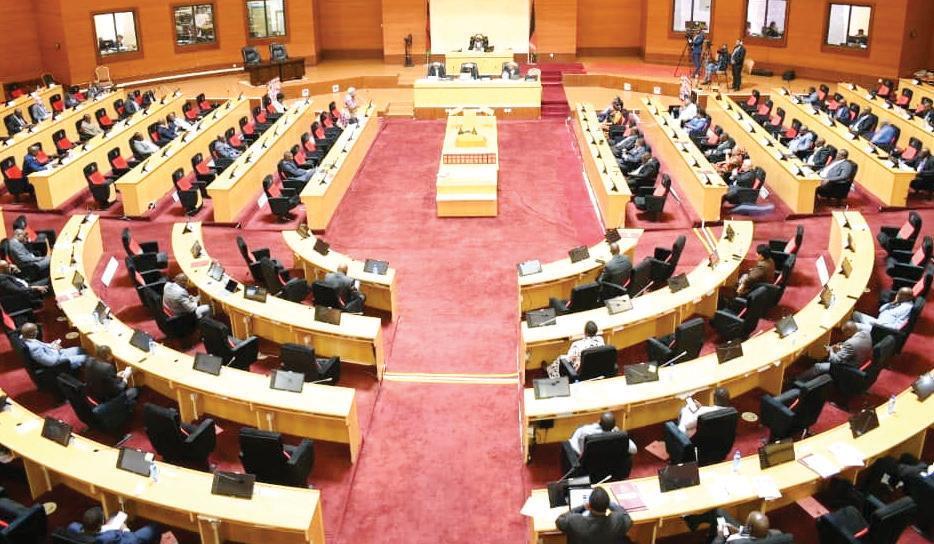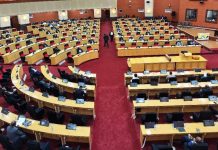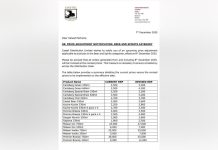Africa-Press – Malawi. Gotani HaraToday, July 23, 2025, Parliament has officially been dissolved, marking the end of a six-year term for the current Members of Parliament (MPs) who were elected in 2019.
This means all MPs, including Speaker Catherine Gotani Hara, her deputies and various parliamentary committees, will no longer hold office.
However, the Cabinet remains in place to oversee government affairs until after the elections.
The MPs have served six years instead of the standard five due to a unique constitutional and electoral situation that started with the annulment of the 2019 presidential election.
Although the parliamentary elections held in the same year were not annulled, this resulted in a misalignment between the presidential and parliamentary electoral cycles.
To address the issue, Parliament passed an amendment to the Presidential, Parliamentary and Local Government Elections Act in February 2020, extending the term of MPs by one year to synchronise all national elections so they could take place together in 2025.
According to Malawi’s electoral laws, the next general election will be held on a Tuesday in the third week of September 2025, unless the Malawi Electoral Commission (Mec) announces another date within a seven-day window.
For now, September 16 remains the scheduled election date, according to Mec’s calendar of events. As campaigning begins, analysts say the path back to Parliament may prove difficult, particularly for MPs who entered as independents.
They note that many of these MPs lacked strong party structures to support them in their constituencies and that those who failed to deliver may struggle to return.
Major political parties such as Malawi Congress Party (MCP), Democratic Progressive Party (DPP), UTM, People’s Party and United Democratic Front are also expected to face strong competition in swing areas and newly created constituencies.
Political analyst Ernest Thindwa is of the view that most sitting MPs are unlikely to return.
“Malawi has one of the highest turnovers of MPs. Many make unrealistic promises that do not reflect the available resources. Others misuse the limited funds, making it difficult to regain voters’ trust,” Thindwa said.
Another political commentator, Joseph Phiri, said that despite the election still being two months away, current indicators point to a likely wave of incumbent losses.
According to Phiri, several factors will contribute to this recurring trend, including widespread public dissatisfaction with the performance of elected officials.
“Many voters believe their MPs have failed to deliver on promises concerning economic growth and improvements in public services,” he said.
Phiri also referred to a recent Afrobarometer survey which showed significant disapproval of MPs’ performance among Malawians, with a majority unhappy about how lawmakers have conducted themselves.
He added that internal party dynamics often weaken incumbents even before the general election.
“Some MPs have lost their party’s nominations in controversial and poorly managed primary elections marked by vote-buying, manipulation and even violence.
“In response, some of these politicians run as independents and still manage to win, contributing to the rising number of independent MPs in Parliament,” he said.
He concluded that a combination of poor service delivery, disconnection from constituents, internal party disputes and the rise of viable independent candidates has created a political landscape where incumbent MPs are likely to face significant challenges.
Willy KambwandiraExecutive Director of the Centre for Social Accountability and Transparency (Csat), Willy Kambwandira, said the 2019–2025 Parliament underperformed in key areas.
“Although Parliament made some progress in modernising procedures, it failed in its core duties of lawmaking, representing the people and holding the government to account,” Kambwandira said.
He added that political infighting and lack of accountability led to public frustration.
According to Kambwandira, people had higher expectations, but MPs focused more on politics than the real needs of the population.
He added that MPs were often seen as acting selfishly, especially in financial matters, with some decisions appearing to be influenced by monetary interests.
“The opposition also failed in its role. Instead of offering constructive alternatives and holding government accountable, it merely made noise,” Kambwandira said.
As part of one of its projects, Csat engaged constituents to assess their understanding and evaluation of their MPs’ performance. Most participants indicated they had lost confidence in their representatives.
The 2025 elections will be held under new constituency and ward boundaries following a re-demarcation exercise carried out by Mec in accordance with electoral laws.
The number of parliamentary seats has increased from 193 to 229, and wards from 462 to 509.
So far, around 7.2 million people have registered to vote.
At the highest level, the battle is expected to be mainly between MCP and DPP in what analysts predict will be a highly contested election.
In his closing statement in Parliament in April, Leader of the House Richard Chimwendo Banda claimed that the DPP, which has consistently accused MCP of oppressing Malawians and failing to govern, was not ready for the election.
“They are already preparing excuses to reject the election results. They have already accepted defeat,” Chimwendo Banda said. However, Leader of the Opposition George Chaponda, who is also a senior DPP member, rejected the claims, insisting that his party would win the election.
For More News And Analysis About Malawi Follow Africa-Press






